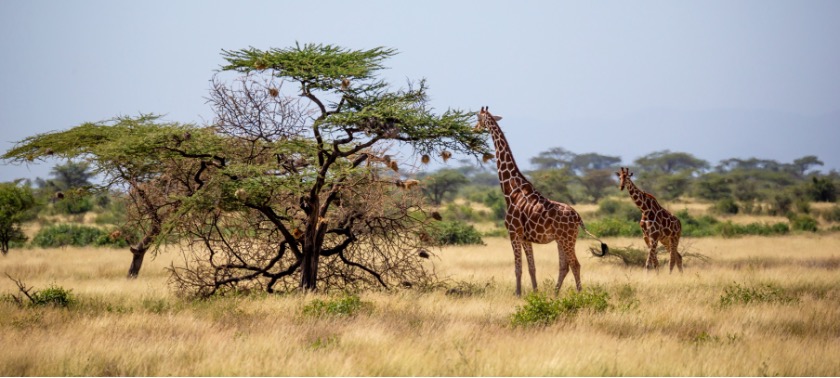Understanding Natural Sciences: A Comprehensive Guide
Natural Sciences – Key Highlights
- Natural Sciences focus on understanding the physical world through observation and experimentation.
- The main branches include Physical Sciences, life science, and earth sciences.
- Studying these disciplines builds critical thinking and analytical skills essential for higher education.
- Knowledge from Natural Sciences drives major technological advancements that shape our daily lives.
- A background in this field opens up a wide array of career paths, from research to finance.
- Specialised fields like astronomy and environmental science offer deeper insights into our planet and universe.
Introduction
Have you ever wondered how our world works, from the smallest atom to the largest galaxy? The Natural Sciences are your gateway to answering these profound questions. This field is dedicated to exploring the physical world and understanding all the natural phenomena that occur within it. This guide will walk you through the core concepts of Natural Sciences, from their main branches to the exciting career opportunities they unlock. Let’s explore what makes this area of study so fascinating and essential.
Defining Natural Sciences and Their Scope
The Natural Sciences represent a major branch of science focused on explaining the rules of the natural world. This field is fundamentally concerned with matter, energy, and their interactions. It encompasses everything from the microscopic world of cells to the vastness of space.

The scope of this discipline is incredibly broad, covering two primary categories: life science, which studies living organisms, and Physical Sciences, which examine non-living systems. By exploring these areas, scientists can predict future events and understand the processes that govern our universe.
What is Natural Science?
At its heart, Natural Sciences is the pursuit of knowledge about the physical world. It is the branch of science that seeks to explain natural phenomena through evidence-based inquiry. If you’ve ever been curious about why the weather changes or how stars are formed, you’ve been thinking like a natural scientist.
This field relies on studying events and processes that occur naturally. Researchers and scientists investigate these occurrences to understand their underlying causes and mechanisms. According to Merriam-Webster, natural science deals with “matter, energy, and their interrelations and transformations or with objectively measurable phenomena.”
Ultimately, the goal is to build a comprehensive understanding of the universe. This research allows us to make predictions, protect our environment, and even develop new technologies by mimicking natural processes. It is a quest driven by human curiosity to make sense of the world around us.
Key Characteristics of Natural Sciences
The Natural Sciences are defined by a distinct set of principles that ensure its findings are reliable and valid. A core characteristic is objectivity, meaning that observations and conclusions must be free from personal bias. This approach allows scientists to study the world as it is, not as they wish it to be.
Experimentation is another crucial element. Scientists design and conduct experiments to test hypotheses and gather data. This hands-on approach is fundamental to every branch of natural science, providing the evidence needed to support or refute scientific theories.
These principles guide the scientific method and are shared across all disciplines within the Natural Sciences. Key characteristics include:
- Reliance on empirical, observable evidence.
- Use of systematic experimentation and observation.
- Commitment to objectivity and logical reasoning.
- The formulation of testable hypotheses.
Learning Natural Sciences Through Everyday Life

Learning Natural Sciences through everyday life offers a unique and engaging approach to understanding the world around us. By observing the phenomena we encounter daily—such as the changing seasons, the behavior of animals, or even simple cooking processes—we can grasp complex scientific principles in practical contexts. For instance, when we cook, we can explore the chemical reactions that transform ingredients, learning about thermodynamics and molecular interactions. Additionally, conducting small experiments at home, like planting seeds to observe growth patterns, can foster a deeper appreciation for biology and ecology. This hands-on engagement encourages curiosity, invites critical thinking, and reinforces the idea that science is not just confined to textbooks, but is an integral part of our everyday experiences. By making these connections, we not only grasp scientific concepts but also develop a lifelong love for learning in the Natural Sciences.
Main Branches of Natural Sciences
The vast field of Natural Sciences is organised into several main branches of natural science, making it easier to study specific aspects of the world. These can be grouped into two major subjects: life science and Physical Sciences. Life sciences are concerned with living things, while Physical Sciences focus on non-living matter and energy.
These categories are further broken down into core disciplines that form the foundation of our scientific knowledge. In the sections below, we will explore the five main branches: biology, chemistry, physics, earth sciences, and space sciences. Each offers a unique lens through which to view our universe.
Exploring Biology
Biology is the quintessential life science, dedicated to the study of all living things. Biologists explore the intricate world of organisms, from the smallest bacteria to the largest whales. This field seeks to understand not only their physical structures and functions but also how they interact with each other and their environment.

The scope of biology is immense, covering a wide range of topics that impact our daily lives. Whether it’s understanding human anatomy to improve health or studying biodiversity to conserve ecosystems, biology provides essential insights. The discipline is all about unraveling the mysteries of life itself.
Some of the fascinating topics you can study under the umbrella of biology include:
- Human Biology: The study of the human body and its systems.
- Microbiology: An exploration of microorganisms like bacteria and viruses.
- Food Science: The science behind how food is produced and processed.
- Animal Biology: Focusing on the behavior, physiology, and genetics of animals.
Insights into Chemistry
As one of the core Physical Sciences, chemistry is the study of matter and its properties. It investigates the composition, structure, and behavior of substances, focusing on the fundamental particles known as atoms. Chemists explore how these atoms bond, react, and rearrange to form new compounds.

Through experimentation, chemists uncover the principles that govern chemical reactions. This knowledge has practical applications that are all around us, from developing new medicines to creating innovative products through materials science. Chemistry provides the building blocks for understanding the material world.
Key areas within the field of chemistry include:
- Chemical Reactions: Studying how different substances interact.
- Properties of Matter: Investigating the physical and chemical characteristics of materials.
- Chemical Composition: Analysing what substances are made of.
- Environmental Chemistry: Examining chemicals in the air, water, and soil.
Understanding Physics
Physics is a fundamental branch of science that seeks to explain how the universe works. This discipline examines the basic principles governing the physical world, including matter, energy, motion, and force. Physicists study everything from the subatomic particles that make up our world to the vast structures of galaxies.

The work of physicists, including pioneers like Albert Einstein, has revolutionised our understanding of space, time, and gravity. This field asks some of the biggest questions and uses mathematics and experimentation to find the answers. It’s a journey to comprehend the fundamental laws of nature.
Physics covers an incredibly diverse range of topics, such as:
- Mechanics: The study of motion and the forces that cause it.
- Thermodynamics: The science of heat and energy transfer.
- Electricity and Magnetism: Exploring the forces that power many of our technologies.
- Radiation and Light: Investigating the properties and behavior of electromagnetic waves.
The World of Earth Sciences
Have you ever wondered what makes our planet Earth so unique? The field of earth sciences is dedicated to answering that question. This branch of natural science focuses on the physical composition and natural processes of our world, from its molten core to the outer atmosphere.

It is an interdisciplinary field that combines several different types of science to create a holistic picture of our planet. Scientists in this area study natural phenomena to better understand climate, natural resources, and geological hazards. It’s all about understanding the dynamic systems that shape our home.
Earth sciences itself is made up of several key disciplines, including:
- Geology: The study of the Earth’s physical structure and substance.
- Oceanography: The exploration of our oceans and marine life.
- Geography: The study of the Earth’s lands, features, and inhabitants.
- Atmospheric Sciences: The examination of the Earth’s atmosphere and weather patterns.
Specialised Fields Within Natural Sciences
Beyond the main branches, the Natural Sciences contain numerous specialised fields that allow for a deeper focus on specific subjects. These areas often blend principles from multiple disciplines to tackle complex questions. Fields like astronomy, environmental science, and planetary science push the boundaries of our knowledge.
These specialisations offer exciting opportunities to explore everything from distant galaxies to the delicate ecosystems here on Earth. Let’s take a closer look at a couple of these fascinating fields and the impact they have on our understanding of the world and universe.
Environmental Science and Its Impact
Environmental science is a critical interdisciplinary field that examines the interactions between humans and the environment. It combines concepts from biology, chemistry, and earth sciences to address some of the most pressing challenges of our time, such as climate change, pollution, and loss of biodiversity.
The impact of this field is profound, as it provides the scientific foundation for policies and practices aimed at protecting our planet. Environmental scientists work to understand complex ecosystems and find sustainable solutions that balance human needs with environmental health. Their work is essential for ensuring a healthy future for all living things.
Key areas of focus in environmental science include:
- Climate Change: Studying its causes, effects, and potential solutions.
- Conservation: Working to protect endangered species and habitats.
- Pollution Control: Developing strategies to reduce contamination of air, water, and soil.
The Role of Astronomy
Often called space science, astronomy is the study of everything beyond Earth’s atmosphere. This captivating field investigates celestial objects like stars, planets, and galaxies to understand their origins and evolution. It fuels our curiosity about the universe and our place within it, driving ambitious goals like space exploration.

There is still so much to learn about the cosmos, and astronomy is at the forefront of this discovery. As noted by the University of Cambridge [https://www.undergraduate.study.cam.ac.uk/courses/natural-sciences], top research includes searching for life’s origins and discovering planets beyond our solar system. This branch of science combines physics, chemistry, and planetary science.
Some of the exciting topics within astronomy include:
- Cosmology: The study of the origin and evolution of the universe.
- Planetary Science: Focusing on planets, moons, and other objects in our solar system and beyond.
- Aerospace Engineering: Designing and building spacecraft for exploration and research.
Natural Sciences in the South African CAPS Curriculum
Educational systems around the world, like the South African CAPS curriculum, recognise the importance of teaching Natural Sciences from an early age. These curricula are structured to build knowledge progressively across different grade levels, starting with basic concepts and moving toward more complex topics.
This structured approach ensures that students develop a solid understanding of scientific principles over time. As they advance, the curriculum prepares them for a higher level of study in specialised scientific fields, equipping them with the foundational knowledge needed for future success. The following sections offer a general look at how these topics might be structured.
CAPS for Natural Sciences Grade 7
In a typical Grade 7 science curriculum, students are introduced to the core concepts that form the basis of the Natural Sciences. The focus is on building foundational skills through hands-on activities and engaging classroom learning. This stage is crucial for sparking curiosity and developing a passion for scientific inquiry.
The learning is often designed to be interactive, encouraging students to ask questions and explore the world around them. They learn how to make observations, conduct simple experiments, and record data, which are essential skills for any aspiring scientist.
A Grade 7 CAPS-style curriculum might organise topics across different terms, covering a mix of life and Physical Sciences.
Term | Potential Topics Covered |
Term 1 | Life and Living: Biosphere, Biodiversity |
Term 2 | Matter and Materials: Properties of Materials, Mixtures |
Term 3 | Energy and Change: Sources of Energy, Heat Transfer |
Term 4 | Planet Earth and Beyond: The Solar System, Earth’s Surface |
Download an example of Doc Scientia’s Grade 7 Natural Sciences Textbook and Workbook here: https://docscientia.co.za/free-samples-english-gr7/
CAPS for Natural Sciences Grade 8
By Grade 8, the Natural Sciences curriculum typically begins to explore topics in greater depth. Students build upon the foundational knowledge from the previous year, with a more distinct separation between life science and Physical Sciences concepts. This helps them start seeing the connections and differences between various scientific disciplines.
The emphasis on skill development continues, with students tackling more complex experiments and analyses. They learn to formulate hypotheses and draw conclusions based on evidence, honing their critical thinking and problem-solving abilities. This stage prepares them for the more specialised subjects they will encounter in later grades.
For example, students might move from a general understanding of “life” to studying specific systems within organisms. In Physical Sciences, they could progress from observing materials to investigating the particle model of matter, setting the stage for more advanced chemistry and physics concepts.
Download an example of Doc Scientia’s Grade 8 Natural Sciences Textbook and Workbook here: https://docscientia.co.za/free-samples-english-gr8/
CAPS for Natural Sciences Grade 9
Grade 9 often serves as a crucial transition year, preparing students for a higher level of science education. The curriculum consolidates their knowledge from previous years and introduces more abstract and complex topics. This is where students begin to engage with concepts that bridge different scientific fields.
For instance, they might explore materials science, which combines principles of chemistry and physics, or delve deeper into earth sciences by studying the interactions between Earth’s systems. The work becomes more quantitative, requiring stronger mathematical skills to analyse data and solve problems.
This final year of the general Natural Sciences curriculum ensures students have a comprehensive understanding before they choose specialised science subjects in high school. It solidifies their scientific literacy and equips them with the confidence and skills needed to pursue further studies in biology, chemistry, physics, or other related fields.
Download an example of Doc Scientia’s Grade 9 Natural Sciences Textbook and Workbook here: https://docscientia.co.za/free-samples-english-gr9/
Studying Natural Sciences: Skills and Benefits
Deciding to pursue the Natural Sciences offers a wealth of skills and benefits that extend far beyond the classroom. The process of studying these subjects inherently cultivates a powerful set of analytical and problem-solving abilities. These foundational skills are highly valued in higher education and are transferable to almost any career path.
From developing a keen eye for detail to fostering an evidence-based mindset, the advantages are numerous. In the following sections, we’ll explore the specific skills you can gain and discuss the broader importance of studying the Natural Sciences in today’s world.
Foundational Skills Taught in Natural Sciences
Natural Sciences are designed to do more than just teach you facts; they are structured to teach you how to think like a scientist. At the core of this training is the development of foundational skills that are essential for scientific inquiry. You learn to approach problems systematically and with an open mind.
One of the first skills you’ll develop is observation. Science begins with noticing the world around you and asking questions about what you see. This is followed by learning the principles of experimentation, where you will design and conduct tests to find answers. Have a look at Tips for writing a practical investigation in Grade 9 Natural Sciences curriculum.
These experiences cultivate a range of valuable abilities, including:
- Analytical Skills: The ability to interpret data and identify patterns.
- Critical Thinking: Evaluating evidence and arguments logically.
- Problem-Solving: Developing creative solutions to complex challenges.
- Mathematical Proficiency: Using math to model and understand natural phenomena.
- Communication: Clearly explaining complex scientific concepts.
The Importance of Studying Natural Sciences
Why is studying Natural Sciences so important? The answer lies in its profound impact on both society and our individual lives. This field of study is the engine behind most technological advancements, from the smartphone in your pocket to the medical treatments that save lives. Understanding scientific principles is key to innovation.
Furthermore, studying the Natural Sciences equips you with powerful critical thinking skills. It trains you to evaluate information, distinguish fact from fiction, and make evidence-based decisions. This ability is more valuable than ever in a world filled with information. It empowers you to better understand complex issues like climate change and public health.
The importance of this field can be seen in many areas:
- It provides explanations for natural phenomena.
- It fosters a deeper appreciation for the natural world.
- It drives economic growth through innovation.
- It helps us solve global challenges.
Careers and Opportunities in Natural Sciences
A degree in the Natural Sciences opens the door to a vast landscape of careers and opportunities. While many graduates pursue higher education to become researchers or academics at institutions like the University of Cambridge, a science background is also highly sought after in many other sectors.
The analytical and problem-solving skills you gain are transferable to a wide range of professions, some of which might surprise you. In the next section, we’ll explore some of the diverse career paths you can follow with a background in the Natural Sciences.
Career Paths With a Background in Natural Sciences
After completing your studies in Natural Sciences, a multitude of career paths become available. Many choose to continue in academia and research, contributing to the ever-growing body of scientific knowledge. This path often involves pursuing a Master’s or PhD and can lead to roles in universities, government labs, or private R&D departments.
However, the opportunities extend well beyond the lab. The skills honed through scientific study are highly valued in industries like finance, technology, and consulting. For example, about half of natural science graduates go directly into a broad range of careers, including software development and financial management.
Some popular career paths include:
- Research Scientist: Conducting experiments and analysing data.
- Healthcare Professional: Roles like a doctor, veterinarian, or pharmacist.
- Environmental Consultant: Advising organisations on environmental impact and sustainability.
- Science Teacher: Inspiring the next generation of scientists.
- Materials Scientist: Developing new materials for various industries.
Conclusion
In conclusion, understanding Natural Sciences is not only vital for academic growth but also essential for fostering a deeper appreciation of the world around us. By exploring its various branches, from biology to earth sciences, and recognising the skills it imparts, you can unlock numerous career opportunities that make a difference in society. Whether you are a student pondering your future or someone simply curious about the natural world, delving into this field can provide insights and knowledge that enrich your life. If you’re interested in taking the next step in your Natural Sciences journey, don’t hesitate to get started today!
Frequently Asked Questions
How is Natural Sciences different from Social Sciences?
The main difference lies in their subject matter. The Natural Sciences, including the Physical Sciences, study the natural world and its phenomena. In contrast, the social sciences are a branch of science that focuses on human society, behavior, and social relationships. Both aim to learn, but their focus is distinct.
What degree programs are available in Natural Sciences?
In higher education, you can find a wide range of degree programs. These include a Bachelor of Science (B.Sc.), which can be broad or specialised. For a higher level of study, you can pursue Master of Science (M.Sc.) and Doctor of Philosophy (PhD) degrees at institutions like the University of Pretoria, Northwest University, Wits, University of Johannesburg.
How does Natural Sciences contribute to technological advancements?
Natural Sciences are the bedrock of technological advancements. Understanding natural phenomena allows us to create new inventions. For example, discoveries in physics led to electricity, while research in materials science has given us everything from new alloys for airplanes to the silicon chips in our computers.

